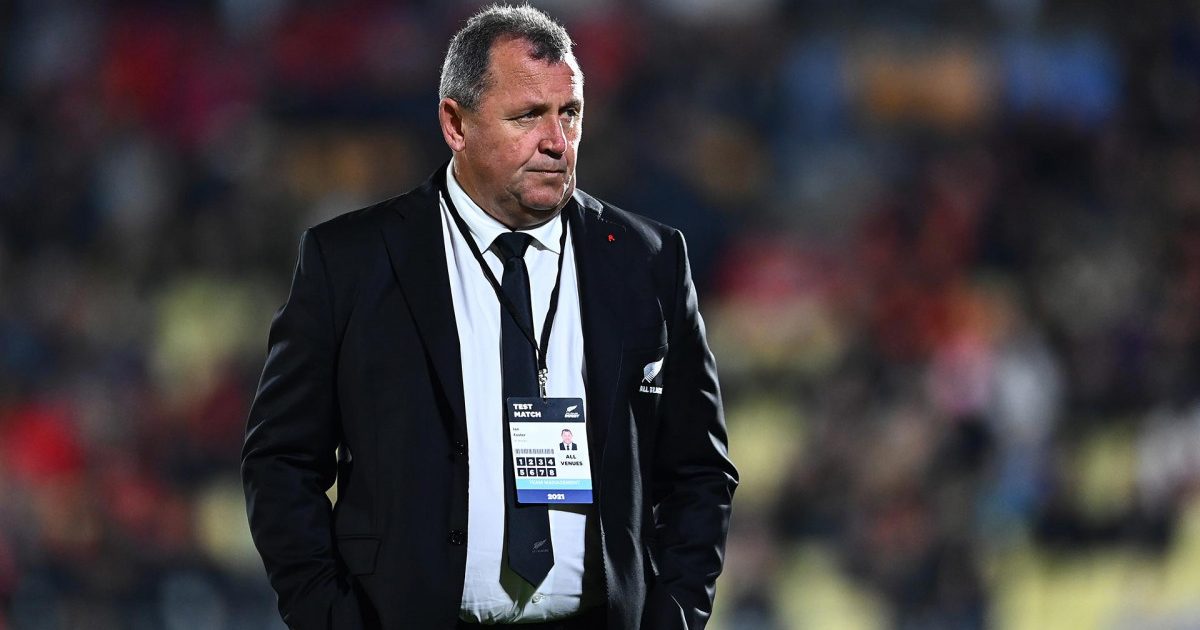What Ian Foster expects from the USA against the All Blacks

New Zealand’s All Blacks expect the underdog United States to feed off the energy of their home crowd when the teams meet in Washington, D.C. this weekend.
The US go into FedEx Field following a disappointing 34-15 defeat at the hands of Uruguay earlier this month, a loss that kept them from qualifying directly for the World Cup.
But All Blacks coach Ian Foster expects the Eagles to be the best version of themselves in the test against the three-time world champions, which is designed to grow interest in the sport among Americans.
“I don’t think they’ll be stung from that,” Foster told reporters on Thursday when asked about the loss to Uruguay.
“I know they’ll be disappointed, but we hear they are putting that to one side. They have the chance to play in their own country in a special stadium, that they don’t normally play in, and in front of a big crowd,” he said.
“To represent their country here against us is very much a motivating factor. We’re expecting a very invigorated Eagles team.”
Foster said the death of Maori All Blacks back Sean Wainui, who perished at age 25 in a car crash on Monday, had impacted the players, especially with them away from home.
“Getting them together and just allowing them to go through a process together has been key,” he said.
“There is a real determination to harness that energy and use it on Saturday.”
Sam Whitelock will captain the side with regular skipper Sam Cane poised to play his first test of the year off the bench after recovering from a pectoral injury.
Richie Mo’unga returns at flyhalf in place of Beauden Barrett, while Damian McKenzie starts at fullback in another of a raft of changes from the team that lost to world champions South Africa in their last match.
ALL BLACKS TEAM
Forwards: Hoskins Sotutu, Dalton Papalii, Luke Jacobson, Tupou Vaa’i, Sam Whitelock (capt), Angus Ta’avao, Asafo Aumua, Ethan de Groot. Backs: Damian McKenzie, Will Jordan, Braydon Ennor, Quinn Tupaea, George Bridge, Richie Mo’unga, Finlay Christie. Subs: Dane Coles, George Bower, Tyrel Lomax, Josh Lord, Sam Cane, TJ Perenara, Beauden Barrett, Anton Lienert-Brown.
The USA vs All Blacks is available to watch live in the US, Canada and Mexico on FloRugby.
























































































